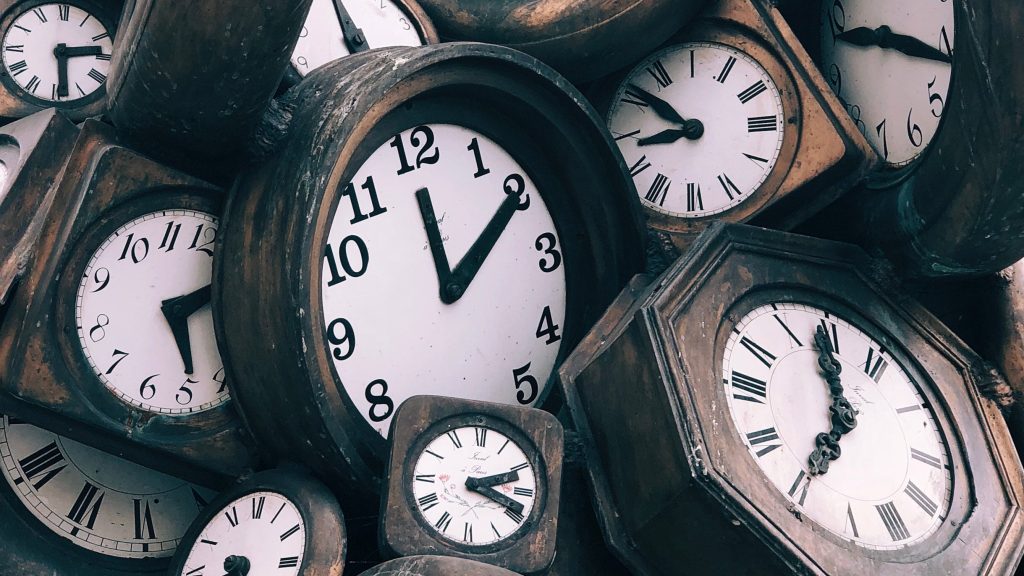Most Canadians turn clocks back one hour this weekend

Posted November 5, 2022 3:00 am.
A majority of Canadians will get an extra hour of sleep this weekend, as clocks go back with the end of daylight time.
Daylight time ends at 2 a.m. on Sunday, putting us back on standard time.
The time change means darkness will arrive earlier in the evening prompting a reminder from the City of Toronto to be alert, especially when it comes to drivers and pedestrians.
In Toronto alone, pedestrian collisions increase by more than 30 per cent between November to March in the evening.
The increase in collisions is part of a push to make daylight time permanent.
The debate about ending seasonal time changes gained traction in Ontario in October 2020 when then-legislator Jeremy Roberts tabled a private member’s bill that would end the twice-a-year time change in Ontario, if Quebec and New York did the same.
The bill passed with unanimous support and would have the province on permanent daylight time. Quebec Premier François Legault suggested he wasn’t opposed but said the matter wasn’t a priority, and no one else has taken up Roberts’ cause in the Ontario legislature since he was voted out of office in June.
British Columbia passed similar legislation the year prior to stick with daylight time but is also waiting on some southern states to do the same.
Yukon decided in 2020 to no longer make seasonal changes and now follows its own standard time zone. Saskatchewan hasn’t changed its clocks in more than 100 years, with the exception of Lloydminster, which straddles the boundary with Alberta.
A unified end to time changes seemed closer to becoming reality in March after the U.S. Senate unanimously approved Republican Sen. Marco Rubio’s Sunshine Protection Act, which would make daylight time permanent across the country and, by effect, much of Canada.
The bill still needs to be passed by the House of Representatives before President Joe Biden can sign off on it, and it remains stalled in the House.
Move to permanent standard time better for our health
But despite popular opinion and government legislation, experts say permanent daylight time could have detrimental effects on people’s health and it’s standard time that governments should shift to.
That’s because standard time is more in line with our natural circadian rhythm and internal biological clock, they said.
“All the circadian and sleep researchers are clear that permanent standard time should be adopted, we should not have the time zone change … for the sake of our health,” said Raymond Lam, a University of British Columbia professor and B.C. leadership chair in depression research.
“Unfortunately, for whatever reason, we can’t figure it out.”
A June 2022 report submitted to Canadian Sleep Society by researchers at the University of Ottawa and Université de Montréal recommended federal and provincial governments move to yearlong standard time and consult with scientists before implementing changes.
University of Calgary professor Michael Antle, who studies circadian rhythms, said early morning light keeps our bodies synchronized to the day-night cycle when days are really short in the winter, and permanent daylight time would cause “chronic harm from being chronically desynchronized.”
Antle said research indicates permanent daylight time would force us to get up an hour earlier for work and school in the winter, which could increase traffic and workplace accidents and see students’ performance in school drop, all due to a lack of alertness.
“We’ve never had that experience in Canada of waking up on permanent daylight time in the winter, so people think it’s not going to be so bad until they try it,” he said.
Antle pointed to Russia, a country as far north as Canada, which moved to permanent daylight time in 2011 only to abandon it three years later.
“They just couldn’t tolerate it … everybody who’s tried it has abandoned it,” said Antle, adding he wouldn’t be surprised if Yukon soon reconsiders its decision.
Standard Time will be in place until March 12, 2023 when clocks “spring forward” again.








